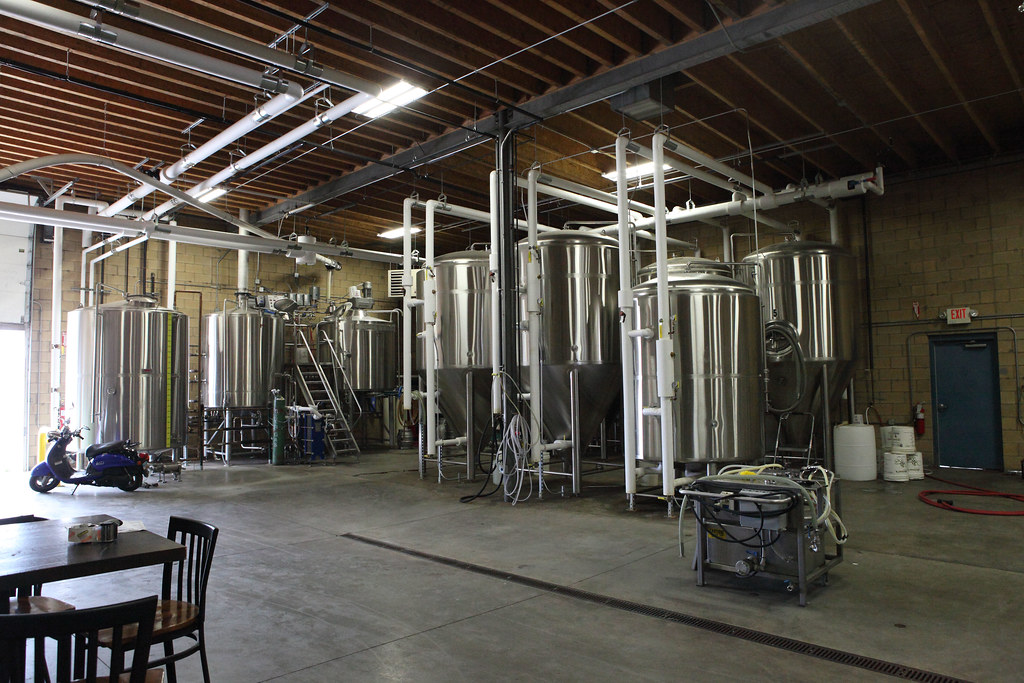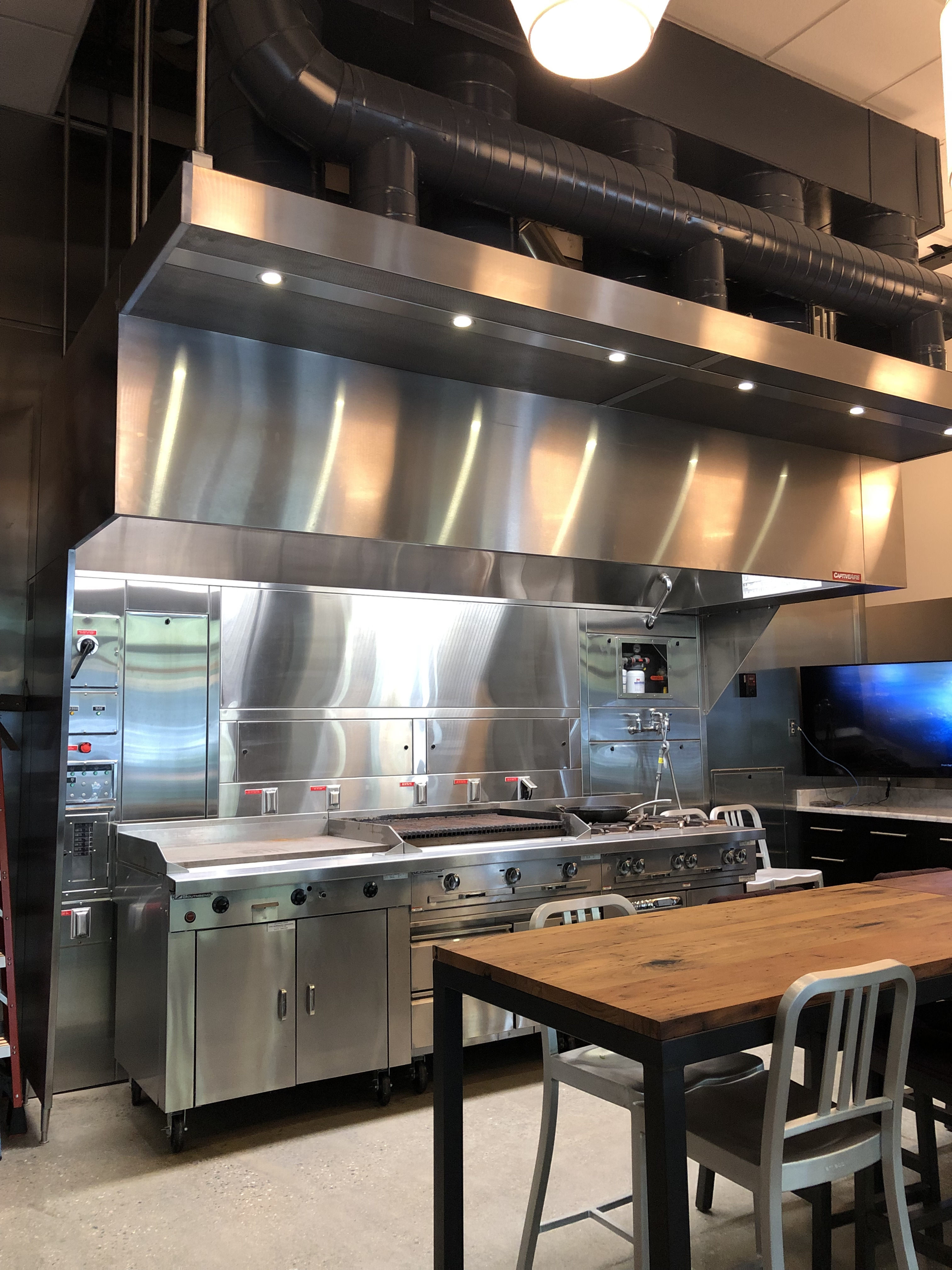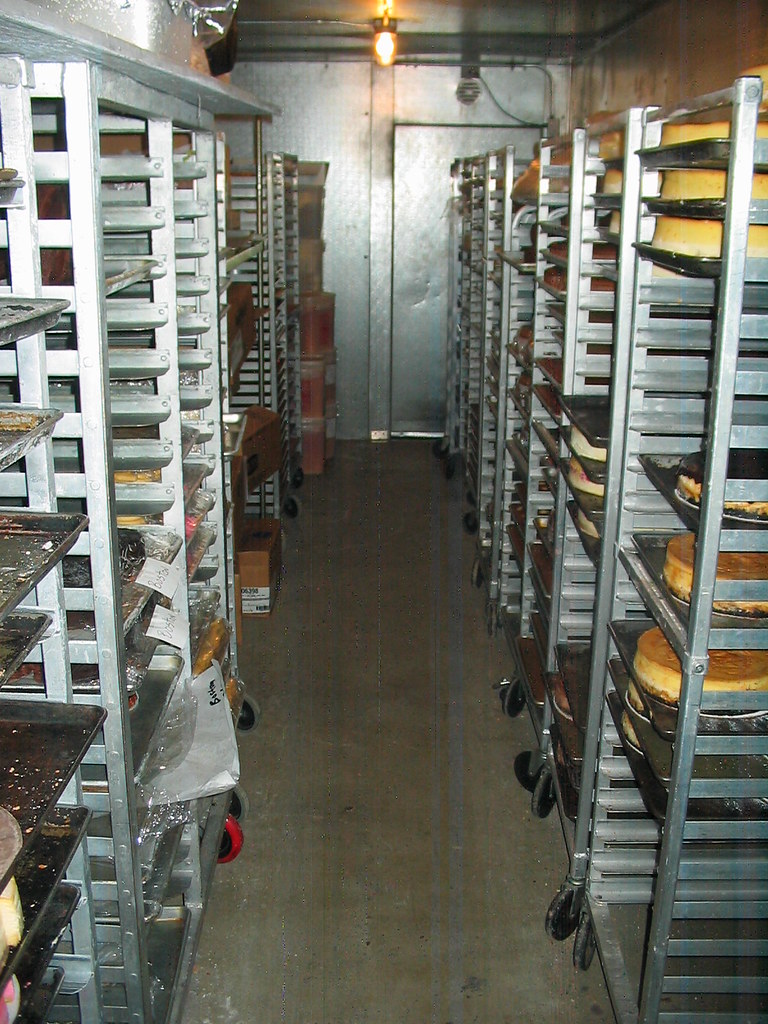5 Common Sheet Metal Uses in Food & Beverage Manufacturing
By: Aimee Sukol, JD/MA/MS Ed.
Sheet metal fabrication produces equipment in all industries. We’ve covered it’s excellent use in medical devices from wheelchairs to operating rooms. Today, I’m exploring sheet metal’s use in food and beverage.
How Sheet Metal Fabrication is Used in Food and Beverage Manufacturing
 1. Breweries
1. Breweries
Breweries use sheet metal in fermenters, custom tanks, and kettles among other equipment. While brewers can find cookie cutter tanks from fabricators abroad, many are finding local sheet metal fabricators to be the better option. First, while Oregon breweries differ in their product volume, craft brewing involves details that require a local, craft metal fabricator to design and manufacture. In particular, high quality metal fabricators will know how to design products resistant to corrosion and contamination based on the brewer’s design preferences and needs. Second, use of metal and metal fabrication in brewery equipment allow for bending, forming, and temperature control necessary for brewing processes.
Sheet metal in breweries is common and necessary. Quality metal fabricators can ensure sterile and durable equipment that meets food and beverage safety standards and protects customers from ongoing maintenance costs.
 2. Commercial kitchen hoods
2. Commercial kitchen hoods
Commercial kitchen hoods are required by law to protect against fire hazards and contamination, and they require appropriately sized sheet metal panels that can be inspected, cleaned, and maintained. The fabrication process, which involves forming, bending and laser cutting for exact measurements and design detail to ensure successful installation and long term use. Kitchen hood manufacturers will have in house metal fabrication services, but often rely on contract fabricators that must be able to observe details and quality standards.
See: Common Problems with Kitchen Ventilation Systems: https://kitchen.services/common-problems-with-restaurant-ventilation-systems/
3. Counter tops
Stainless steel countertops are not limited to commercial kitchens. Newer homes are increasingly using steel countertops over granite for a more modern look and the conveniences steel offers. First, stainless steel countertops don’t stain, burn or rust. Steel is also easy to clean and customers can select from different finishes for a custom design. Stainless steel is also fairly easy to install & clean, and protects best against contamination and germs.
Commercial countertops are frequently stainless steel for the very reasons mentioned above – clean, simple, and durable. Bending and forming abilities with metal also provide considerable flexibility in sizing, and shorter turn around time to produce custom orders. Depending on the distributor, metal prices may be similar to marble and customers concerned about potential for dents will want a thicker metal gauge. In the end, the most valuable features of a metal fabricator in producing countertops are reliability and strong customer service.
See: All You Need to Know about Stainless Steel Countertops by Bob Villa: https://www.bobvila.com/articles/stainless-steel-countertops/
 4. Coolers/Commercial Freezers
4. Coolers/Commercial Freezers
Sheet metal fabrication is important for freezer production:
First, sheet metal fabrication has tools and processes that control costs better than 3D printing. Second, sheet metal is malleable and easy to work with and easier to customize, which reduces time and expense. Third, sheet metal is easier to clean thereby protecting against contamination. Last, sheet metal is durable and perfect for temperature control.
In short, restaurant food is kept fresh and safe by best restaurant practices and the materials/craftsmanship of the equipment they use.
Five Benefits of Sheet Metal Fabrication in Commercial Refrigeration, Heating and Cooling: https://connect2local.com/l/328804/c/832782/5-benefits-of-sheet-metal-fabrication-for-commercial-refrigeration–heating—cooling
5. Garbages/Refuse Receptacles
Whether your kitchen is commercial or residential, there are clear benefits to using a metal based garbage receptacle than plastic, namely sanitation.
First, plastic absorbs odors that are difficult to remove, and when you’re working around food or discarding old food, metal is a better choice for controlling odor. Second, metal is easier to clean and doesn’t absorb liquids, which promotes a sanitary environment.
Like plastic, metal fabrication affords considerable customization so there are plenty of designs and options that meet different kitchen needs. The most important feature here, however, is that metal garbages control odor and contamination.
Conclusion:
The food and beverage industry involves a considerable amount of sheet metal fabrication. Key advantages are the malleability, temperature & contamination controls, and durability, which protect workers and customers alike. Many OEMs will have in house metal fabrication services to control processes and costs, others look to contract sheet metal fabrication for parts that may require a different focus. As with medical equipment, food and beverage quality standards impact community health, which is why metal fabricators must have strong quality control and adhere to best practices.
For more information about Meta Fab’s full metal fabrication services, visit https://www.metafab.com/our-services/ or contact Tony Varela at sales@metafab.com.